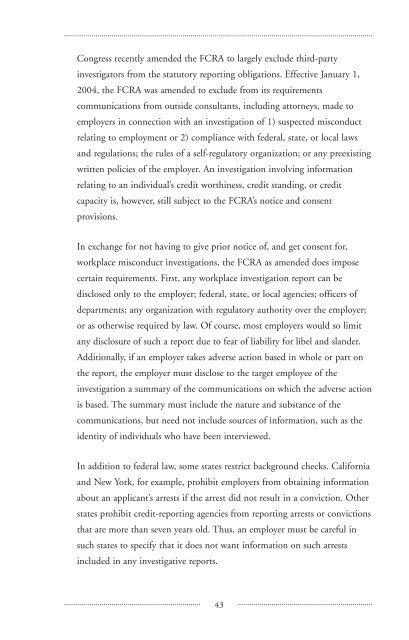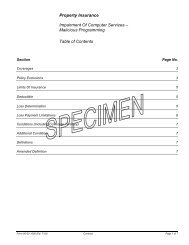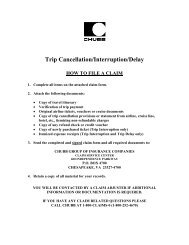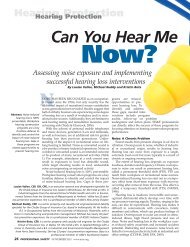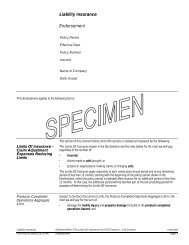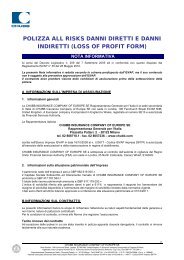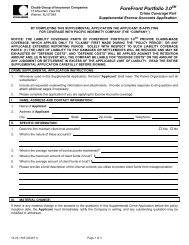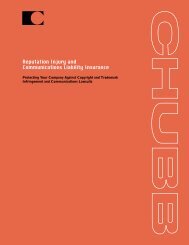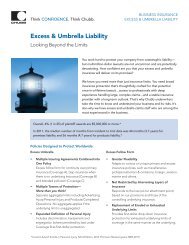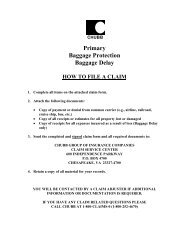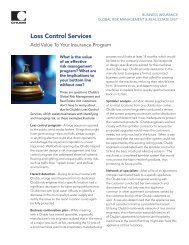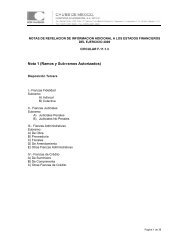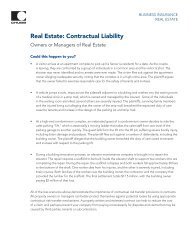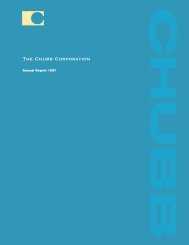Employment Practices Loss Prevention Guidelines - Chubb Group of ...
Employment Practices Loss Prevention Guidelines - Chubb Group of ...
Employment Practices Loss Prevention Guidelines - Chubb Group of ...
You also want an ePaper? Increase the reach of your titles
YUMPU automatically turns print PDFs into web optimized ePapers that Google loves.
Congress recently amended the FCRA to largely exclude third-party<br />
investigators from the statutory reporting obligations. Effective January 1,<br />
2004, the FCRA was amended to exclude from its requirements<br />
communications from outside consultants, including attorneys, made to<br />
employers in connection with an investigation <strong>of</strong> 1) suspected misconduct<br />
relating to employment or 2) compliance with federal, state, or local laws<br />
and regulations; the rules <strong>of</strong> a self-regulatory organization; or any preexisting<br />
written policies <strong>of</strong> the employer. An investigation involving information<br />
relating to an individual’s credit worthiness, credit standing, or credit<br />
capacity is, however, still subject to the FCRA’s notice and consent<br />
provisions.<br />
In exchange for not having to give prior notice <strong>of</strong>, and get consent for,<br />
workplace misconduct investigations, the FCRA as amended does impose<br />
certain requirements. First, any workplace investigation report can be<br />
disclosed only to the employer; federal, state, or local agencies; <strong>of</strong>ficers <strong>of</strong><br />
departments; any organization with regulatory authority over the employer;<br />
or as otherwise required by law. Of course, most employers would so limit<br />
any disclosure <strong>of</strong> such a report due to fear <strong>of</strong> liability for libel and slander.<br />
Additionally, if an employer takes adverse action based in whole or part on<br />
the report, the employer must disclose to the target employee <strong>of</strong> the<br />
investigation a summary <strong>of</strong> the communications on which the adverse action<br />
is based. The summary must include the nature and substance <strong>of</strong> the<br />
communications, but need not include sources <strong>of</strong> information, such as the<br />
identity <strong>of</strong> individuals who have been interviewed.<br />
In addition to federal law, some states restrict background checks. California<br />
and New York, for example, prohibit employers from obtaining information<br />
about an applicant’s arrests if the arrest did not result in a conviction. Other<br />
states prohibit credit-reporting agencies from reporting arrests or convictions<br />
that are more than seven years old. Thus, an employer must be careful in<br />
such states to specify that it does not want information on such arrests<br />
included in any investigative reports.<br />
43


